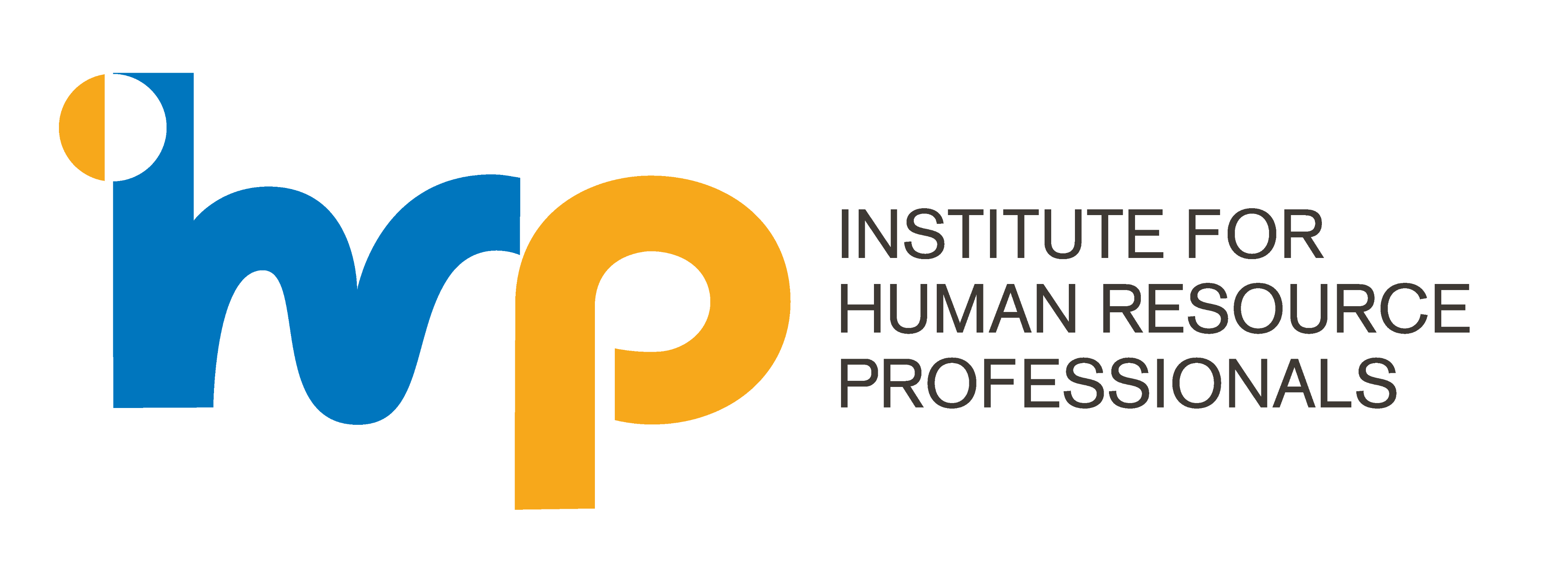Placeholder | Placeholder
Advanced Competencies
Know what you’re looking for?
Drive Business Value
Advanced Competencies
Apply insights on trends and key business drivers to co-create business and People strategies that drive sustainable business value and accelerate business growth.
IHRP Master Professional
- Formulate the organisation’s business models and overall strategy with the senior management team, to drive business growth, foster innovation, and create a purposeful, productive and inclusive work environment.
- Establish a culture of risk awareness within HR, to anticipate and mitigate the potential impact of emerging trends on the workforce and people strategies, minimising impact on employees and the organisation’s operations.
- Assess current business priorities, considering emerging trends (e.g., technological, geopolitical, environmental), to align and enhance People practices, and recommend strategies to navigate complex decisions and risks.
- Identify and assess the current and future core capabilities required to execute the business strategy in a competitive and evolving external environment.
- Lead the effort to strengthen the leadership pipeline by cultivating resilient and capable leaders who will guide the organisation for long-term success with minimal disruption to the business.
- Lead the development of People strategy and initiatives to enhance business performance, productivity, and employee experience, enabling the organisation to achieve its objectives with the relevant processes, skills and capabilities.
- Leverage strategic acumen to construct a persuasive business case that showcases the long-term impact of People Initiatives on the overall business performance.
- Define success metrics to measure the impact of People initiatives on business performance, productivity and employee experience.
The descriptions in the Advanced Competencies reflect the expectations of IHRP Master Professionals (MP) across three key personas:
- Organisational Leader: The role of the HR leader in shaping the organisation’s overall strategies and culture to deliver on the strategic business objectives.
- HR Leader: The role of the HR leader in elevating the HR function, guiding, and fostering an environment (e.g., skills, culture) that enables the HR team to enhance the employee experience.
- People Leader: The role of the HR leader in unlocking the value employees bring, championing their development and wellbeing in the organisation, enabling them to contribute their best and align their goals with business objectives.
Steer Organisation Culture and Change
Advanced Competencies
Lead, direct, inspire and enable changes in the organisation’s culture, by providing compelling and impactful leadership.
IHRP Master Professional
- Shape a unified organisational culture (e.g., organisational core values, leadership behaviours and norms) aligned with strategic objectives by incorporating diverse views from the business leaders to foster shared accountability in culture development.
- Highlight the importance of organisation culture, and the commercial benefits of culture building to secure buy-in from business leaders.
- Lead by example and advocate the organisation’s culture through communication, embodying its values, consistently demonstrating desired behaviours, and implementing people processes that reinforce the desired culture.
- Coach business leaders on exemplifying desired behaviours, navigating complex changes, and effective communication with their teams.
- Formulate strategies to resolve organisational challenges related to ethics, culture, and performance, empowering business leaders and line managers to address dilemmas and conflicts.
- Inspire stakeholders across the organisation (e.g., Departments, HR, business leaders, line managers, and employees) to uphold integrity and ethics, establishing a foundation built on values and principles, which is critical for culture-building and navigating changes.
- Communicate expected conduct and behaviours aligned with organisation’s values, enhancing employee understanding and connection with the organisation’s purpose and values.
- Drive large-scale organisational change, serving as an innovation enabler and change champion to create an agile organisation capable of transformation, delivering sustainable value and navigating uncertainty.
- Spearhead the creation of safe, inclusive environments for employees’ feedback and address concerns and grievances to minimise resistance and derailment of change initiatives.
- Evaluate change management strategies and organisational culture efficacy against the business objectives, the external environment, and employee feedback for enhancement and alignment.
The descriptions in the Advanced Competencies reflect the expectations of IHRP Master Professionals (MP) across three key personas:
- Organisational Leader: The role of the HR leader in shaping the organisation’s overall strategies and culture to deliver on the strategic business objectives.
- HR Leader: The role of the HR leader in elevating the HR function, guiding, and fostering an environment (e.g., skills, culture) that enables the HR team to enhance the employee experience.
- People Leader: The role of the HR leader in unlocking the value employees bring, championing their development and wellbeing in the organisation, enabling them to contribute their best and align their goals with business objectives.
Deliver Strategic Insights and Foresights
Advanced Competencies
Synthesise future-oriented viewpoints to offer agile, innovative and effective solutions that solve strategic organisational challenges or issues.
IHRP Master Professional
- Anticipate global and local trends and disruptions, articulating their potential implications to the workforce’s size and structure, translating them into implications for People strategies and priorities.
- Champion the adoption of insights-driven practices to predict workforce demands and gaps, and drive scenario planning, influencing senior management (including the Board), and enabling informed decision-making.
- Harness people-related data through relevant technology (e.g., people analytics, artificial intelligence), to deliver evidence-based insights and inform decision-making.
- Lead the development of innovative workforce solutions, improving organisational effectiveness and addressing workforce demand-supply gaps to ensure that the organisation remains resilient and agile.
- Champion the adoption of compelling storytelling techniques across the HR function, to present actionable people insights in an engaging way to business leaders.
- Uphold ethics and courage in navigating complex decisions and situations, using data insights and evidence-based practices to advocate for one’s point of view, challenging unethical practices and influencing leaders to make ethical and sound decisions.
- Share thought leadership with peers and HR community to elevate the HR profession and foster cross-industry networks.
- Champion the ethical and responsible use of data, ensuring teams utilise people-related data fairly, and in compliance with data protection policies, ethical guidelines and relevant legislations.
The descriptions in the Advanced Competencies reflect the expectations of IHRP Master Professionals (MP) across three key personas:
- Organisational Leader: The role of the HR leader in shaping the organisation’s overall strategies and culture to deliver on the strategic business objectives.
- HR Leader: The role of the HR leader in elevating the HR function, guiding, and fostering an environment (e.g., skills, culture) that enables the HR team to enhance the employee experience.
- People Leader: The role of the HR leader in unlocking the value employees bring, championing their development and wellbeing in the organisation, enabling them to contribute their best and align their goals with business objectives.
Amplify HR Impact
Advanced Competencies
Formulate People strategies which drive impact and ensure organisation resilience while enhancing the employee value proposition.
IHRP Master Professional
- Leverage industry trends and insights to formulate and reinvent the organisation’s people strategy, ensuring People practices remain resilient, relevant and impactful in times of change.
- Serve as a trusted member of the senior business leadership team, leveraging industry knowledge and thought leadership in HR to nurture collaborative partnerships, co-create, and implement People strategies that solve business issues and address people challenges.
- Drive awareness and buy-in for key People practices, articulating the intent and emphasising the benefits and values to employees and business leaders.
- Establish effective governance to ensure that People practices are fairly and consistently implemented across the organisation.
- Empower the HR function to be a voice for employees by actively listening and communicating their perspectives to the management, and co-designing policies and strategies to elevate the employee experience and wellbeing.
- Mentor and guide the HR function to consider the workforce impact of People practices, ensuring that they remain accountable, agile and are equipped to navigate ambiguity or paradoxes across the organisation.
- Formulate People policies and practices that balance organisational and employee interests, fostering a fair and inclusive culture where employees feel a sense of belonging and achieve their highest levels of productivity and development.
The descriptions in the Advanced Competencies reflect the expectations of IHRP Master Professionals (MP) across three key personas:
- Organisational Leader: The role of the HR leader in shaping the organisation’s overall strategies and culture to deliver on the strategic business objectives.
- HR Leader: The role of the HR leader in elevating the HR function, guiding, and fostering an environment (e.g., skills, culture) that enables the HR team to enhance the employee experience.
- People Leader: The role of the HR leader in unlocking the value employees bring, championing their development and wellbeing in the organisation, enabling them to contribute their best and align their goals with business objectives.
Engage and Influence Stakeholders
Advanced Competencies
Cultivate relationships with internal and external stakeholders by building trust and establishing credibility and leverage these connections to drive support and commitment towards the people and business agenda.
IHRP Master Professional
- Build relationships with stakeholders (e.g., business leaders, department heads, managers, and employees) to facilitate the successful implementation of People initiatives and shape the employee value proposition.
- Cultivate networks and lead dialogues with stakeholders (e.g., government bodies, union representatives, industry associations, education institutions) to influence policies, industry initiatives or national programmes that impact business priorities.
- Navigate complex internal and external stakeholder relationships, managing sensitive discussions, mediating conflicts and resolving difficult situations.
- Influence the Board and senior business leaders to account for strategic people-related considerations when shaping the business strategy, prioritising the workforce’s best interests.
- Engage and influence internal and external senior stakeholders through effective negotiation strategies, to reach agreements that support the overall strategic direction and objectives of the organisation.
- Foster and navigate relationships with broader ecosystem stakeholders (e.g., the community, government bodies, unions, industry associations) to proactively identify and address risk, fortifying the organisation’s position and safeguarding its reputation.
- Foster confidence and capabilities within the HR function to communicate with internal and external stakeholders in an impactful way, providing guidance on navigating complex discussions.
- Champion user-focused design approaches, empowering members of the HR function to engage with diverse stakeholders across the organisation for feedback.
- Advise the senior management team on fostering a psychologically safe environment that supports two-way communications to enable their teams to achieve their potential and collaborate effectively.
The descriptions in the Advanced Competencies reflect the expectations of IHRP Master Professionals (MP) across three key personas:
- Organisational Leader: The role of the HR leader in shaping the organisation’s overall strategies and culture to deliver on the strategic business objectives.
- HR Leader: The role of the HR leader in elevating the HR function, guiding, and fostering an environment (e.g., skills, culture) that enables the HR team to enhance the employee experience.
- People Leader: The role of the HR leader in unlocking the value employees bring, championing their development and wellbeing in the organisation, enabling them to contribute their best and align their goals with business objectives.

